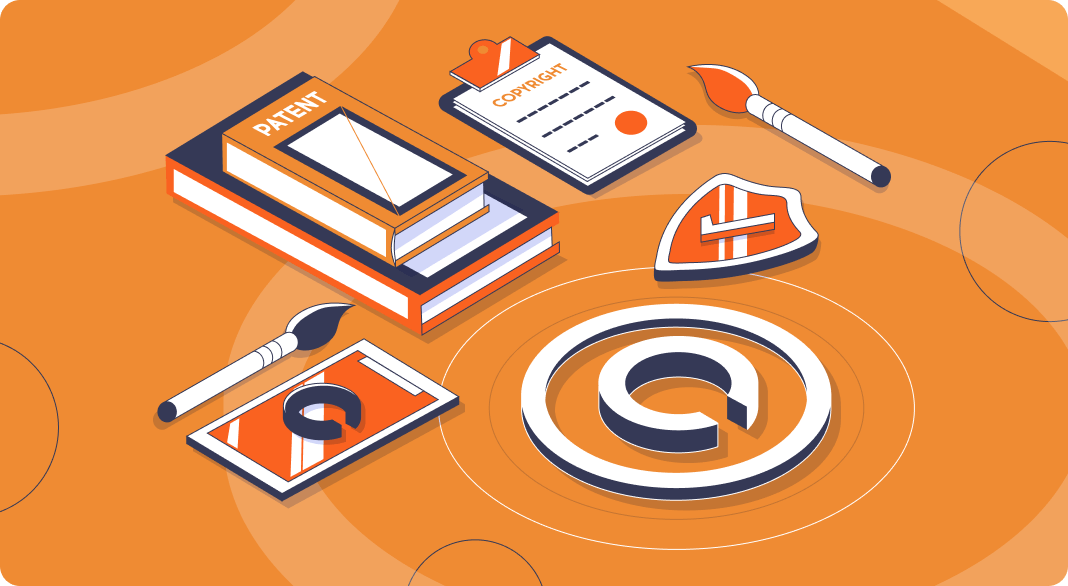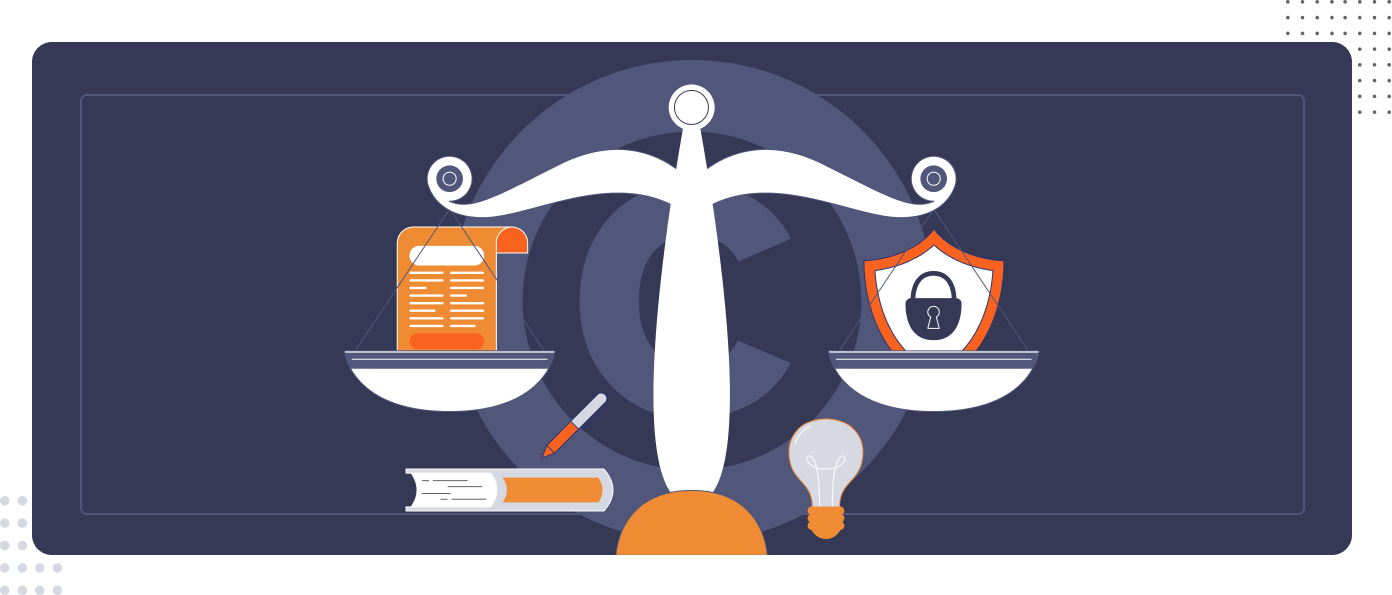KPIs Unpacked – The Software Development Guide You Need
Navigate the complex landscape of software development with KPI mastery. Unearth essential metrics, balance goals, and unlock project...


The article "Software Copyright vs Patent: Essential Guide for Developers" provides a comprehensive analysis of the distinctions between software copyright and patent protection. It explores the fundamental concepts of software copyright and patent law, emphasizing the importance of understanding these concepts for developers. The article also delves into the process of obtaining a patent in the United States, highlighting the criteria an invention must meet to be eligible for patent protection. By addressing key arguments and challenges related to software copyright and patents, this guide equips developers with the knowledge necessary to navigate the complex landscape of intellectual property in the digital realm.
This article explores the nuances of software copyright and patent protection, presenting a detailed comparison between the two forms of intellectual property rights. It delves into the legal aspects of software copyright, emphasizing the significance of authorship proof for enforceability. Additionally, it delves into the requirements and complexities of obtaining a patent in the United States, such as novelty, usefulness, and non-obviousness. The article also discusses counter arguments surrounding the patentability of abstract ideas and highlights the legal and financial complexities associated with obtaining patents in the ever-evolving digital world. This comprehensive guide serves as a valuable resource for developers seeking to gain a deep understanding of software copyright and patent law and navigate the intricacies of intellectual property protection in the software industry.
When it comes to shielding your intellectual property in the realm of computing software, being aware of the details between "software copyright and patent" is essential. These two legal instruments provide different types and levels of protection for developed software, each with its unique set of rules and implications.
In this comprehensive guide, we delve into the nuances between copyrights and patents as they apply to software programs. We'll explore what constitutes a software invention under patent law, how copyright law protects source code, and what is considered patentable subject matter.
We'll also discuss the eligibility criteria for obtaining a patent in the United States - an area where definitions have evolved over time due to inventions related to computer programs. Furthermore, we will examine both sides of pursuing a software patent; weighing up potential advantages that such protection might offer against any disadvantages associated with applying for one.
Lastly but importantly, if you're not keen on going down the path of securing a software patent or if your invention doesn't meet certain requirements under patent law – fear not! We've got you covered with alternative strategies including being first-to-market and publicizing successes which can help safeguard your work effectively.
In the world of software development, protecting your intellectual property is crucial. One way to do this is through software copyrights. But what exactly are they? Let's delve deeper.
A copyright grants creators control over their original work. In software, it protects the expression of an idea rather than the idea itself. So, as soon as you finish writing code or designing a user interface, you automatically own its copyright.
The beauty of copyrights is that there's no need for a formal registration process or approval from authorities like with patents. Your work gets protected by law immediately upon creation, giving you some peace-of-mind while developing new applications.
Software copyrights are legitimate and enforceable under the law, but you need to be able to prove authorship if challenged legally. If someone recreates your work exactly without having access to it, they're infringing on your rights. However, if they independently come up with similar output, they technically aren't violating anything since they didn't copy yours directly.
This might seem like a gray area, but you can mitigate it by maintaining detailed records during the development phase. These records, like drafts, sketches, and notes, can serve as evidence in court, proving ownership beyond reasonable doubt and strengthening your claim against potential violators. No one else can utilize digital copies of copyrighted material which has been made public without permission from the rightful owner.

A software patent is like a superhero cape for your brilliant idea. It protects the core concept itself, not just the way it's expressed (like copyrights).
Basically, a software patent covers any computer wizardry you've cooked up. From data processing to user interfaces, if you've created a mind-blowing way for computers to do their thing, you can potentially patent it.
But hold your horses. Patents don't rain from the sky like confetti. You gotta apply for them. It involves submitting detailed descriptions and claims to the U.S Patent Office for review.
If your patent gets the green light, you'll enjoy exclusive rights to your genius for 15-20 years. Design patents (for fancy-looking stuff) last 15 years, while utility patents (for processes and machines, including software) last up to 20 years.
During the granted period, you have absolute authority. You control who can use, make, or sell products based on your patented technology. Talk about a competitive advantage.
But hey, getting a patent isn't always a walk in the park. It can be legally and financially complex, especially in the ever-changing digital world. We'll dive into that in the next sections, so stay tuned.
The world of intellectual property has changed a lot. It's not just about physical inventions anymore. Now, we've got plants, DNA, and even computer software in the mix. This expansion has made the criteria for getting a patent more interesting.
In the old days, patents were all about machines and chemicals. But as technology advanced, the U.S Patent Office (USPTO) decided to include non-physical creations like software algorithms and business methods.
Of course, not everyone was on board with this idea. Some argued that these "abstract ideas" shouldn't be patentable because they could hinder innovation. But the USPTO stuck to its guns and said that as long as an invention is new, not obvious, and useful, it can be patented, whether it's physical or abstract.
If you want to patent your software idea or method in the United States, you've got to follow some specific steps laid out by the USPTO:
Check if your invention qualifies: Make sure it's new, useful, and not obvious.
File an application: Choose between provisional or non-provisional applications, depending on your strategy. Online filing systems make this easier than ever.
Pay the fees: There are costs involved, depending on the complexity of your application and your entity type. Budget accordingly.
When it comes to software, patents focus more on the operations rather than the code itself. You need to show that your techniques are inherently linked to technology and go beyond automating existing manual tasks. Basically, prove that it's "technological" to meet the eligibility requirements.
Reminding yourself that the patenting process can be tough, but it could pay off with exclusive power over your product's deployment and marketing, giving you a bonus in the business world. You'll have exclusive control over your product's use and distribution, giving you a competitive advantage in the marketplace.

Getting a patent for software in the United States requires meeting certain criteria, including proving that the invention is new, useful, and not obvious. The USPTO allows for patents on abstract ideas as long as they are tied to technology and go beyond automating existing tasks.
One way to do it is by getting a software patent. But like everything else, there are upsides and downsides to this approach.
A software patent shields you from copycats who want to steal your genius. It grants you the sole authority to produce, market and exploit your invention for a designated period of time - generally ranging from 15-20 years depending on the kind of patent. This exclusivity can give you a leg up in the fast-paced tech market.
Plus, having a patent makes your company more attractive to investors and potential buyers. It shows that you've got something special - something worth investing in or acquiring.
But hold on, there are drawbacks to consider before diving into the patent pool. Applying for a patent can be an expensive and time-consuming endeavor, requiring extensive documentation and the assistance of IP lawyers. You'll need fancy documentation and pricey experts like IP lawyers to make your case.
And that's not all - the United States Patent Office (USPTO) is notorious for its backlog. You might be waiting for years before getting the green light, if you get it at all.
And even if you do get approved, you'll have to keep paying to maintain those rights. Otherwise, poof. They're gone.
In a nutshell, software patents can be a game-changer for protecting your creation and gaining an edge. But they also come with challenges like long waits and hefty costs. So, think twice before taking the patent plunge.
In today's rapidly evolving world of software engineering, time is an essential component. Patents are like high-maintenance relationships - they require time and money. But fear not, my friend. There are other ways to protect your work without going down the patent rabbit hole.
Being the first to market is like being the cool kid in school - everyone wants to be your friend. By being the first to launch your product, you can position yourself as a leader and cultivate a dedicated fanbase. Be the "it" person, but make sure your product is up to snuff or you'll be left with a lemon.
Shout it from the rooftops, my friend. Publicizing your successes not only spreads the word about your awesomeness, but it also establishes prior art. That means no one can come along later and claim your brilliant ideas as their own. Share your triumphs on industry journals, tech blogs, or even GitHub. Let the world know you're the real deal.
And if all else fails, consider using copyright laws to protect your software creations. It's like a ninja move - quick and cost-effective. No need for formal registration, just automatic protection upon creation. It's the software developer's secret weapon.
Understanding the differences between software copyright and patent is crucial for tech businesses - it's like knowing the difference between a cat and a dog. Software copyrights protect the expression of an idea, while patents grant exclusive rights to an invention or process - it's like having a copyright on your dance moves or a patent on your secret recipe. Copyrights are automatic upon creation, but patents require a formal application process - it's like getting a participation trophy versus winning an Olympic gold medal. When deciding whether to pursue a software patent, consider the pros and cons - it's like weighing the benefits of eating a whole pizza versus the potential heartburn. Patents can be costly and have disclosure requirements, but being first-to-market and publicizing your successes can also protect your work - it's like choosing between buying a fancy car or hitchhiking with a sign that says "I'm awesome."
Software copyright and software patent differ in that copyright safeguards the specific expression of an idea within software, whereas a patent protects the fundamental concept or invention itself
Copyright is typically more advantageous for software developers as it offers immediate protection and encompasses the specific expression of their software. On the other hand, patents necessitate a time-consuming and costly application procedure.
Steps involved in protecting software intellectual property include documenting your software development process, implementing trade secret protection, considering copyright or patent protection, and enforcing your rights when infringements occur.
Navigate the complex landscape of software development with KPI mastery. Unearth essential metrics, balance goals, and unlock project...
Discover the top custom software trends for 2023: Web 3.0, blockchain benefits, TensorFlow AI, IaC advantages, and LCNC platforms. Embrace...
ChatGPT vs. Claude: Clash of AI Titans! Unleash Creativity or Ensure Precision? Dive into the ultimate showdown of imaginative dialogue vs....